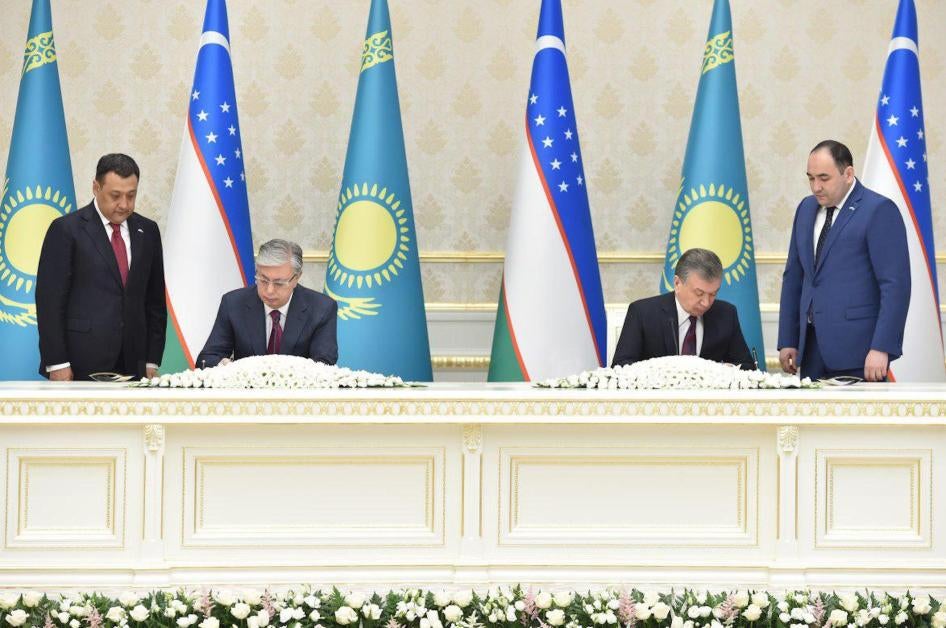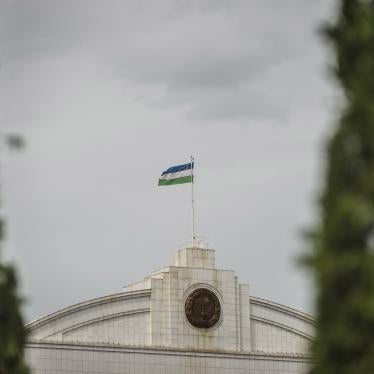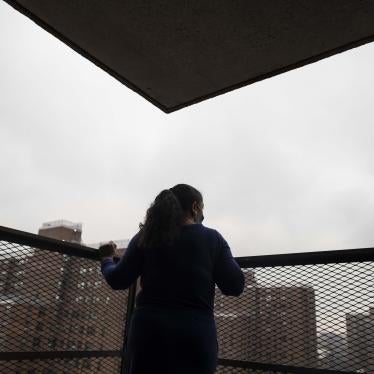(Berlin, October 15, 2022) – Kazakh authorities should not extradite four Karakalpak diaspora activists to Uzbekistan, where they would face a serious risk of politically motivated prosecution and torture, Human Rights Watch said today. All four activists – who emigrated to Kazakhstan years ago – have advocated for protecting the sovereignty of the Republic of Karakalpakstan, in northern Uzbekistan, where protests erupted earlier this year over proposed constitutional amendments.
"Uzbek authorities appear to be targeting diaspora Karakalpak activists as part of their heavy-handed response to the July protests in Karakalpakstan," said Mihra Rittmann, senior Central Asia researcher at Human Rights Watch. “There is no doubt these activists face a serious risk of torture and politically motivated prosecution if forcibly returned to Uzbekistan and Kazakhstan is legally prohibited from sending them back in such circumstances. They should refuse the request and release the activists.”
Acting on information that the activists were placed on an international wanted list by Uzbek authorities, Kazakh police detained the four activists from the Karakalpak diaspora in Almaty, between September 13 and October 5, 2022. Koshkarbai Toremuratov, 47, a dissident blogger, and Zhangeldy Zhaksymbetov, 53, an opposition figure, were picked up by police at their homes the night of September 13. Raisa Khudaibergenova, 55, a cardiologist, was detained at her workplace on the outskirts of Almaty in the evening of September 16. Ziyuar Mirmanbetova, 46, another activist, was detained at her home in Almaty on October 4.
While the individual criminal charges each activist faces in Uzbekistan have not been made public, another diaspora Karakalpak activist in Almaty, Akylbek Muratov, who has seen several documents pertaining to the charges, told Human Rights Watch that the four are wanted by Uzbekistan for alleged offenses against the state.
The charges may be in connection with events that took place in Karakalpakstan on July 1 and 2. At least 21 people died and over 240 were injured after police violently broke up protests in Nukus and other cities in Karakalpakstan against proposed constitutional amendments that sought to remove the right of the Karakalpakstan region to seek independence, should its citizens choose to do so in a referendum.
Uzbekistan’s President Shavkat Mirziyoyev blamed “foreign forces” for the events but announced that the draft provisions regarding Karakalpakstan would be removed from the draft constitution.
The authorities initially detained over 500 people in response to the violence, and media reported that some detainees alleged that they were ill-treated and tortured in detention and experienced interference trying to contact their lawyers or see their family members. On July 8, Uzbekistan’s Prosecutor General’s office announced that 14 people were facing charges of attempting to overthrow the constitutional order under article 159 of the Criminal Code.
Within two days of their arrests in Almaty, local courts ruled that the Karakalpak activists should remain in custody, for an initial 40 days. Uzbek authorities are expected to formally request their extradition, said Denis Zhivago, a lawyer specializing in refugee and asylum issues at the Kazakhstan International Bureau of Human Rights and Rule of Law, a local human rights organization in Almaty. Courts can extend their detention for up to one year, Zhivago said, adding that in the case of Toremuratov, an Almaty court ruled on October 13 to extend his time in detention.
All four activists have applied for asylum with the Kazakh authorities. In Kazakh law, once the activists are registered as “persons seeking asylum” they will have an official status that affords them protection from forcible return to Uzbekistan as long as their claims are under review, Zhivago said.
Kazakh authorities should formally register Toremuratov, Zhaksymbetov, Khudaibergenova, and Mirmanbetova as asylum seekers as quickly as possible, Human Rights Watch said.
Kazakhstan is bound by the international law principle of nonrefoulement not to extradite or otherwise forcibly return people to places where their lives or freedoms may be threatened or where they face a risk of torture. The Convention against Torture prohibits the return of anyone, including nonrefugees, to a place where that person would be in danger of torture. The 1951 Convention Relating to the Status of Refugees and its 1967 protocol prohibits the return of refugees, which extends to asylum seekers who have not had a full and fair determination of their refugee claims.
Human rights organizations have documented numerous cases of torture and other ill-treatment, and arbitrary detention, of individuals accused of anti-state crimes in Uzbekistan in recent years.
In March 2020, the United Nations Human Rights Committee, which monitors compliance with the International covenant on Civil and Political Rights, expressed concern about “continued reports of torture and ill-treatment, including sexual violence and rape, by prison officials and law enforcement personnel against persons deprived of liberty, including individuals detained on what appear to be politically motivated charges.” The committee also noted its concern about “the high level of impunity that exists in these cases, manifested by the low number of investigations, prosecutions and convictions under article 235 of the Criminal Code, and about the lenient penalties often imposed on perpetrators.”
International human rights treaties to which Kazakhstan is party trump any bilateral or regional agreements between Kazakhstan and Uzbekistan, Human Rights Watch said.
“Kazakhstan should take note of the credible reports of torture and ill-treatment in Uzbekistan in considering the activists’ asylum claims as well as the Uzbek authorities’ extradition requests,” Rittmann said. “Kazakhstan has an international obligation to protect these men and women from the likely persecution and torture that awaits them if they’re forced to return to Uzbekistan.”








